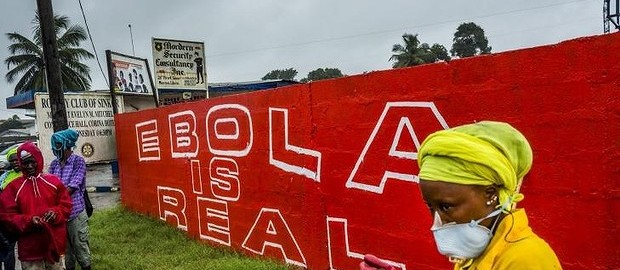The outbreak of Ebola is sweeping throughout West Africa becomes drastically worse right before it decreases, infecting as much as 20,000 people, the World Health Organisation mentioned, as US researchers declared intentions to start human safety tests next week in the battle to build up a highly effective vaccine.
Adding more urgency to the crisis, new research detailed how the virus at the heart of the outbreak has mutated repeatedly in recent months, a fact that could hinder diagnosis and treatment of the devastating disease the longer the crisis stretches on. Five of the paper’s 50 co-authors died of Ebola before they could see their findings about the sequencing of the virus’ genome published.
Despite the bad news continuing to flow out of West Africa – of overfilled and understaffed treatment centres, of airlines suspending service into affected areas, of controversial quarantines, of body counts climbing by the day – Thursday also brought a sense that the international response to the crisis, widely criticised as slow and inadequate, is shifting into higher gear.
The World Health Organisation issued a “roadmap” aimed at stopping the Ebola outbreak within the next six to nine months. It includes dramatically scaling up efforts to contain the spread of the disease and treat those stricken by it, increased resources at hospitals and isolation centres, ensuring safe burials and more aggressive public awareness campaigns.
The agency said it also will work to clear logistical “bottlenecks” that have made it difficult to get disinfectants, body bags, gloves and other medical supplies to the areas where they are desperately needed.
The plan will cost an estimated $US490 million ($524 million) over the next six months and require thousands of experts and local volunteers, the agency said. That doesn’t include support for other essential services or helping West African health systems recover from the epidemic.
The organisation also offered sobering new numbers of Ebola’s toll in West Africa. At least 1552 deaths and 3069 people infected have been recorded in the four countries battling the virus – Guinea, Liberia, Sierra Leone and Nigeria – though the actual totals almost certainly are higher.
Scientists from the National Institutes of Health, in collaboration with British drugmaker GlaxoSmithKline, said the experimental vaccine that will undergo human trials beginning next week has shown promising results in non-human primates. If the trials are successful, officials said, they could have 10,000 doses available in short order to immunise health workers and others at risk of contracting Ebola.
The NIH and other groups, such as the British public health charity Wellcome Trust, are trying to line up similar human Ebola vaccine trials in Britain, Gambia and Mali beginning as early as next month. And the Centres for Disease Control and Prevention is in talks with Nigerian officials about conducting trials in that country.
As researchers work toward effective treatments for Ebola, the study published on Thursday in Science offered new insights into the origins of the outbreak and how it ended up in West Africa. By genetically sequencing samples of the Ebola Zaire strain – one of five types known to infect humans – researchers said the virus appears to have diverged about a decade ago from a related strain in Central Africa, where previous outbreaks have occurred.
Ebola’s arrival in Sierra Leone this spring appears to have begun with a single funeral, according to the findings. A young woman who had recently suffered a miscarriage arrived at Kenema Government Hospital in Sierra Leone in May with a high fever. During her treatment, doctors discovered she had been infected with Ebola, becoming the country’s first diagnosed case.
The woman recovered, but health workers who traced her contacts discovered that she and more than a dozen other women recently had attended the burial of a traditional healer who had been treating Ebola patients near the Sierra Leone-Guinea border. All had been infected.
The study also details more than 300 genetic mutations that make the present Ebola outbreak different from any in the past.









